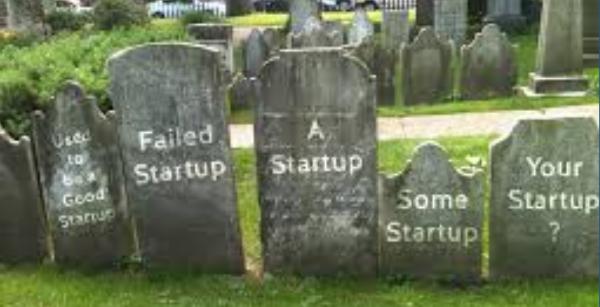Startups cannot die Open Source
Do you know what lawyers tell startups that die, and why?

What happens when startups die?
Intellectual Property (IP) is an umbrella term that includes copyrights, patents and trademarks. When a Silicon Valley startup dies, its IP often ends up inside Sherwood Partners, the main Silicon Valley’s specialist in “assignment for the benefit of creditors” (ABC).
ABC is the process by which insolvent companies assign their assets, titles, and property to a trustee, and that company. ABC is what makes of Sherwood partners a very profitable “literal repository of IP” from failed startups. Its sister company, called Agency IP, explores the applicability of patents inside that repository. Then Sherwood Partners “probably monetizes more patents than anyone else in the world”.
The other side of this coin is that nobody else can use anything that Sherwood Partners cannot sell, until it becomes just useless. Patents that are good, but cannot generate enough money to make Sherwood Partners happy, are simply left to rot until they expire. If I remember correctly that is 17 years, but most tech, especially of the Silicon Valley variety, becomes obsolete way before that.
A waste, isn’t it?
This waste is the very reason why one of the things that a lawyer that assists startups gone bad always tells his clients is: “You can’t sell your IP or take it with you - but you can make it open-source and help others out, or yourself down the line."

The serious problem here is that startups are simply NOT built to allow that. The only realistic way to make any organization die in “Open Source fashion” is to BUILD and run it that way since the beginning, even if it never goes Open Source. That is why those patents “gone bad” do not generate more wealth and real innovation, and hardly will, until the whole system changes.
By the way, there is more in that article than this lesson. Let’s move move from openness strategies to privilege, and dumb cities.
In Silicon Valley, even failure is money. For whom?
These days, when Silicon Valley startups die or are acquired, their most skilled (or powerful) employees immediately find another job, often with their buyers, often paid as much, if not more, than the one that failed.
OK. But “Given the gender dynamics of Silicon Valley”, that means that (young) men who went to any university with the top managers “usually fail better”. Another very important insight of that article is the one about “lifestyle business”, that is: a business designed to keep its owners fed and happy rather than making them obscenely rich.
Lifestyle business, says the article, is kind of a pejorative in the world of startups, because “to be reminded of why people normally work is an unwelcome dose of real life, of gravity, of adulthood”. But this is just what may make certain cities that look so smart today become the weakest and dumbset ones.
Who writes this, why, and how to help
I am Marco Fioretti, tech writer and aspiring polymath doing human-digital research and popularization.
I do it because YOUR civil rights and the quality of YOUR life depend every year more on how software is used AROUND you.
To this end, I have already shared more than a million words on this blog, without any paywall or user tracking, and am sharing the next million through a newsletter, also without any paywall.
The more direct support I get, the more I can continue to inform for free parents, teachers, decision makers, and everybody else who should know more stuff like this. You can support me with paid subscriptions to my newsletter, donations via PayPal (mfioretti@nexaima.net) or LiberaPay, or in any of the other ways listed here.THANKS for your support!